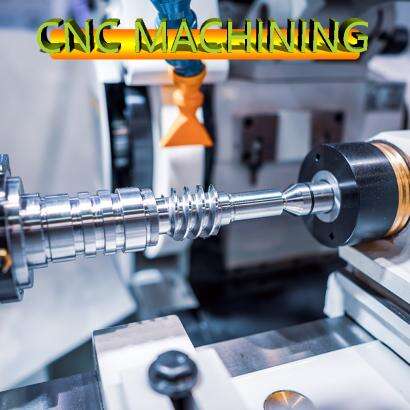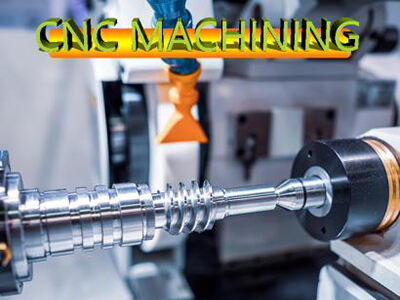Otomotiv endüstrisi, dünyadaki en dinamik ve yenilik odaklı sektörlerden biridir. Elektrikli araçlardan otonom sürüşe kadar değişimın hızı şaşırtıcıdır. Ancak her keskin teknoloji taşıyan araca, hassas mühendislik ve imalatın temeli yatmaktadır. Bu hassasiyeti sağlayan en kritik teknolojilerden biri olan CNC (Bilgisayar Numerik Kontrol) makinalamasıdır. Bu makalede, CNC makinalamanın otomotiv parçaları üretimini nasıl dönüştürdüğünü, neden vazgeçilmez olduğunu ve bu oyun kurallarını değiştirici teknolojinin geleceği hakkında ne bekleniyor ele alacağız.

CNC işleme nedir?
CNC makinalama, torno, freze, fayans ve cilalama gibi makine araçlarını bilgisayarla kontrol eden bir üretim sürecidir. Metal, plastik ve bileşikler gibi malzemelerin hassas kesilmesi, şekillendirilmesi ve bitişlemesine izin verir. Elle yapılan makinalamadan farklı olarak, CNC makinalaması otomatikleştirilmiş olup eşsiz doğruluk, tekrarlanabilirlik ve verimlilik sağlar.
Neden CNC Makinalama Otomotiv Üretiminde Oyun Değiştiricidir
Otomotiv endüstrisi, yüksek hassasiyet, dayanıklılık ve ölçeklenebilirlik istemektedir. CNC makinalaması bu taleplerle doğrudan karşı karşıya gelir ve birkaç önemli avantaj sunar:
1.Hassasiyet ve Doğruluk
Otomotiv parçaları, güvenliği ve performansı sağlamak için sıkı toleranslara uymalıdır. CNC makinalaması ±0.001 inç kadar dar toleranslara ulaşabilmektedir, bu da motorsuz bloklar, vites parçaları ve fren sistemleri gibi karmaşık bileşenler üretmek için ideal hale getirir.
2.Tutarlılık ve Tekrarlanabilirlik
Toplu üretimde tutarlılık kritik öneme sahiptir. CNC makineleri, minimum varyasyon ile binlerce aynı parçayı üretebilmekte ve her bir aracın aynı yüksek standartlara uyduğunu garanti etmektedir.
3.Karmaşık Geometriler
Modern araçlar, geleneksel yöntemlerle imal edilmesi genellikle olanaksız olan detaylı bileşenlerle tasarlanmıştır. CNC makinalaması, eğri yüzeyler, alt kesimler ve ince ayrıntılar gibi karmaşık şekiller ve özellikler oluşturmayı kolayca sağlar.
4.Malzeme Çeşitliliği
Alüminyum ve çelikten titan ve bileşke malzemelere kadar, CNC makineleri geniş bir yelpazede malzemele ile çalışabilir. Bu esneklik, hafif ağırlıklı, dayanıklı ve yüksek performanslı otomotiv parçaları üretmek için temelendir.
5.Hız ve Etkinlik
CNC makinalandırma süreçleri otomatikleştirmek ve insan hatasını minimize etmek suretiyle üretim süresini azaltır. Bu etkinlik, otomotiv parçaları için yüksek talebi karşılamak için kritik importance taşır.
Otomotiv Üretiminde CNC Makinalandırmanın Ana Uygulamaları
CNC makinalandırma, çeşitli otomotiv bileşenlerinin üretilmesinde kullanılır. İşte en kritik uygulamaların bazıları:
1.Motor Bileşenleri
CNC makinalandırma, silindir kafaları, pistonlar, kranksaplar ve kam sapları gibi motor parçalarının imal edilmesinde kullanılır. Bu bileşenlerin optimal performans ve yakıt verimliliği sağlamak için aşırı hassasiyet gerektirir.
2.Birim Parçaları
Dişliler, mili ve kasalar, tümü CNC makinalandırma kullanılarak üretilir. CNC makinelerinin yüksek doğruluğu, birim sistemlerinin sorunsuz çalışmasını ve uzun ömürlülüğünü garanti altına alır.
3. Süspansiyon ve Direksiyon Sistemleri
Kontrol kolları, direksiyon knukları ve şok emici parçaları gibi bileşenlerin dayanıklılığı ve kesinliği için CNC machineteme bağımlıdır.
4. Fren Sistemleri
Fren kalıpları, rotorlar ve fren blokları, taşıta güvenli bir şekilde frenleme sağlayabilmek için kritik öneme sahiptir. CNC machineteme bu parçaların tam belirtilere göre üretilmesini sağlar, güvenilir bir fren performansı sunarak.
5. Özel ve Prototip Parçalar
CNC machineteme özel veya prototip parçalar üretmek için değerlidir. Kavram aracı için tek adet bir parça ya da özel parçaların küçük bir partisi olsun, CNC makineler hızlı bir şekilde yüksek kaliteli sonuçlar sunar.
CNC Machinetemenin Elektrikli Araçlarda (EVs) Rolü
Otomotiv endüstrisi elektrikli araçlara doğru kaydırırken, CNC makinalaması öne çıkan bir rol oynamaktadır. EV'ler özel bileşenler gerektirir, örneğin pil kasaları, elektrikli motor parçaları ve hafif ağırlıklı yapısal elemanlar. CNC makinalamanın karbon lif ve titan gibi ileri düzeydeki malzemelerle çalışabilme yeteneği, bu yüksek performanslı parçaları üretmek için temel hale gelmiştir.
Otomotiv Üretiminde CNC Makinalamanın Geleceği
Teknoloji gelişmeleri ve hassas bileşenler için artan talepte olduğundan, otomotiv endüstrisinde CNC makinalamanın geleceği parlaktır. İzlemek için bazı eğilimler şunlardır:
1.Otomasyon ve Robotik
CNC makinelerinin robotik sistemler ve otomasyon sistemleriyle entegrasyonu üretim hatlarını basitleştiriyor, işgücü maliyetlerini azaltıyor ve verimliliği artırıyor.
2.Ekleme Üretim (3D Baskı)
CNC makinalamasını 3D baskı ile birleştirme, karmaşık geometriler içeren hibrit parçalar yapma imkanı sunuyor ve malzeme israfını azaltıyor.
3.Yapay Zeka ve Makine Öğrenimi
Yapay zeka destekli CNC makineleri, araç yollarını optimize edebilir, bakım gereksinimlerini tahmin edebilir ve genel üretim verimliliğini artırabilir.
4. Çevrecilik
İade edilebilir malzemelerin ve enerji tasarrufu yapabilen makinelerin kullanımı ile CNC makineleşmesi, otomotiv endüstrisinin sürdürülebilirlilik doğrultusunda ilerlemesiyle uyumlu hale geliyor.
CNC makineleşmesi, otomotiv parçaları imalatının temelini oluşturmuştur ve yüksek hassasiyetli, dayanıklı ve karmaşık bileşenlerin üretilmesini mümkün kılmıştır. Otomotiv endüstrisi sürekli olarak gelişmeye devam ederken, CNC makineleşmesi yenilikleri sürdürecek ve nesil aracaların geliştirilmesini destekleyecek.
Geleneksel bir yanma motörü olsun ya da en son teknolojiye sahip elektrikli bir taşıt, CNC makineleşmesi tekerleklerin dönmeye devam etmesini sağlayan gizli kahramandır—gerçek anlamda. Otomobil üreticileri için, CNC teknolojisine yatırım sadece bir seçenek değil; değişen bir endüstride rekabetçi kalmak için bir gerekliliktir.
Nedense Sonra?
Eğer otomotiv sektöründe iseniz, CNC makinalandırmanın üretim süreçlerinizi nasıl geliştirebileceğini keşfetmek için şimdi tam zamanı. Prototip denemelerinden kütle üretebilirliğe kadar olan olanaklar sınırsız. Aşağıdaki yorumlarda CNC makinalandırmasının otomotiv imalatında oynadığı rolle ilgili düşüncelerinizi paylaşın ve konuyu beraber ilerletelim!
Uzman İpuçluğu: Güvenilir bir CNC makinalandırma ortağı arıyor musunuz? Lütfen otomotiv imalatında deneyime sahip ve yüksek kaliteli parçalar sunma konusunda iyi bir geçmişe sahip bir sağlayıcı seçin. Araçlarınız sadece en iyisiyle yetinmeli!


